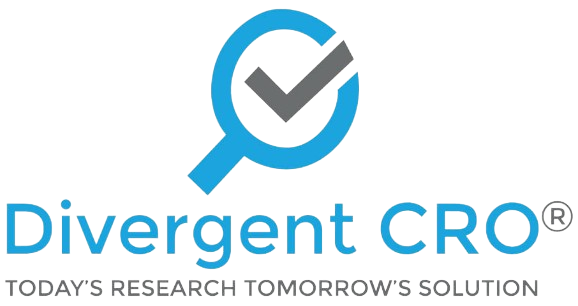October is recognized as ADHD Awareness Month, a time to shed light on Attention-Deficit Hyperactivity Disorder (ADHD) and its impact, especially within BIPOC communities. This month is crucial for raising awareness, reducing stigma, and promoting understanding of ADHD among diverse populations. Many BIPOC individuals face unique challenges when it comes to diagnosis and support, making awareness efforts even more vital.
Key Takeaways
- ADHD affects individuals across all backgrounds, but BIPOC communities often face unique challenges in diagnosis and treatment.
- Cultural stigma can prevent many from seeking help or understanding ADHD, leading to misdiagnosis or delayed support.
- Access to care is often limited for BIPOC individuals, making it harder to get proper diagnosis and treatment.
- Community support and resources are essential for BIPOC individuals with ADHD to thrive and manage their symptoms effectively.
- ADHD Awareness Month serves as a platform to educate, advocate, and empower those affected by ADHD, fostering understanding and support.
Understanding ADHD in BIPOC Communities
Prevalence and Statistics
ADHD, or Attention-Deficit Hyperactivity Disorder, affects many people, but its impact can vary across different communities. In the U.S., BIPOC children are 70% more likely to receive an ADHD diagnosis compared to their white peers. This statistic highlights the need for better understanding and support within these communities.
| Group | ADHD Diagnosis Rate |
|---|---|
| BIPOC Children | 70% more likely |
| White Children | Baseline |
Common Misconceptions
There are several myths about ADHD, especially in BIPOC communities:
- ADHD is just a lack of discipline.
- Only children can have ADHD; adults do not.
- Medication is the only solution.
These misconceptions can lead to stigma and prevent individuals from seeking help.
Impact on Daily Life
ADHD can significantly affect daily activities, including:
- School Performance: Difficulty focusing can lead to lower grades.
- Social Interactions: Impulsivity may cause challenges in friendships.
- Family Dynamics: Parents may struggle to understand their child’s behavior.
Understanding ADHD is crucial for creating supportive environments. With the right resources and awareness, individuals can thrive despite their challenges.
Challenges in Diagnosing ADHD Among BIPOC
Cultural Stigma and Misunderstanding
Many BIPOC communities face significant cultural stigma when it comes to mental health issues, including ADHD. This stigma can lead to misunderstandings about the disorder, often causing families to dismiss symptoms as behavioral problems rather than seeking help. Common beliefs include:
- "Children just need more discipline."
- "ADHD is not a real condition."
- "Medication is not necessary."
Barriers to Accessing Care
Accessing proper care for ADHD can be challenging for BIPOC individuals. Some barriers include:
- Financial limitations: Many families may not have insurance or the means to pay for evaluations.
- Lack of culturally competent providers: There may be few healthcare professionals who understand the unique experiences of BIPOC individuals.
- Transportation issues: Getting to appointments can be difficult, especially in underserved areas.
The Role of Schools and Educators
Schools play a crucial role in identifying ADHD, but they often fall short. Many BIPOC students are misidentified or overlooked due to biases. For example:
- BIPOC students are more likely to be labeled as disruptive rather than having ADHD.
- Teachers may not receive adequate training to recognize ADHD symptoms in diverse populations.
- There is often a lack of resources for creating Individualized Education Plans (IEPs) for these students.
Understanding these challenges is essential for improving ADHD diagnosis and treatment in BIPOC communities. By addressing stigma, increasing access to care, and training educators, we can create a more supportive environment for those affected by ADHD.
Supporting BIPOC Individuals with ADHD
Community Resources and Organizations
Supporting BIPOC individuals with ADHD involves connecting them with the right resources. Here are some organizations that can help:
- Children and Adults with Attention-Deficit/Hyperactivity Disorder (CHADD)
- Attention Deficit Disorder Association (ADDA)
- ADHD Foundation
- Child Mind Institute
- ADHD World Federation
Mental Health Support
Mental health support is crucial for BIPOC individuals with ADHD. Here are some ways to find help:
- Seek professional evaluations from psychologists or psychiatrists.
- Join support groups that focus on ADHD in BIPOC communities.
- Consider ADHD coaching to develop personalized coping strategies.
Educational Tools and Strategies
Implementing effective educational tools can make a big difference. Here are some strategies:
- Create a distraction-free workspace for studying.
- Use timers to help manage time during homework.
- Establish routines to provide structure and predictability.
Supporting BIPOC individuals with ADHD is essential for their success. With the right resources and understanding, we can help them thrive.
The Importance of ADHD Awareness Month

ADHD Awareness Month is a special time each October dedicated to spreading knowledge about Attention Deficit Hyperactivity Disorder (ADHD). This month is crucial for reducing stigma and promoting understanding of ADHD.
History and Evolution
- ADHD Awareness Month started in 2004 as a single day of awareness.
- It has grown into a full month of activities and education.
- The month is organized by a coalition of three main organizations focused on ADHD.
Goals and Objectives
- Reduce Stigma: Help people understand ADHD better to lessen misconceptions.
- Promote Education: Teach families and the public about ADHD symptoms and effects.
- Advocate for Better Care: Push for improved access to diagnosis and treatment.
- Encourage Early Intervention: Highlight the importance of identifying ADHD early for better management.
- Build Support Networks: Create a community for individuals with ADHD and their families.
- Highlight Research: Share the latest findings and advancements in ADHD treatment.
- Empower Individuals: Help those with ADHD feel confident in seeking help and making informed choices.
How to Get Involved
- Wear orange to show support for ADHD awareness.
- Share your story or experiences with ADHD on social media.
- Participate in local events or webinars focused on ADHD education.
ADHD Awareness Month is not just about raising awareness; it’s about creating a supportive community that understands and values the experiences of those with ADHD.
Personal Stories and Experiences
Voices from the Community
Many individuals from BIPOC communities have shared their experiences with ADHD. These stories highlight the unique challenges and triumphs faced by those navigating ADHD in their lives. For instance, Chandra, a mother, took proactive steps when she suspected her son had ADHD. She sought professional help and made changes at home and school to support his learning.
Overcoming Stigma
Overcoming stigma is crucial for families dealing with ADHD. Here are some key points to consider:
- Education: Learning about ADHD helps reduce misunderstandings.
- Support: Building a supportive environment at home can make a big difference.
- Patience: Parents are encouraged to be patient and understanding with their children.
Success Stories and Achievements
Many BIPOC individuals with ADHD have achieved great things despite their challenges. Here are a few examples:
- Academic Success: Students who received proper support have excelled in school.
- Career Growth: Adults with ADHD have found fulfilling careers by leveraging their unique strengths.
- Community Leadership: Some have become advocates for ADHD awareness, helping others in their communities.
"ADHD is just one part of who I am. With the right support, I can achieve my dreams."
— A BIPOC individual sharing their journey with ADHD.
Advocacy and Policy Change
Current Legislation
Advocacy for ADHD awareness is crucial, especially in BIPOC communities. Here are some key points about current legislation:
- Many states are working to improve ADHD diagnosis and treatment.
- Some laws aim to increase funding for mental health services.
- Advocacy groups are pushing for better insurance coverage for ADHD treatments.
Advocacy Groups and Initiatives
Several organizations are dedicated to supporting ADHD awareness and advocacy:
- ADHD Awareness Month Coalition: Focuses on education and reducing stigma.
- Children and Adults with Attention-Deficit/Hyperactivity Disorder (CHADD): Provides resources and support for individuals with ADHD.
- Attention Deficit Disorder Association (ADDA): Works to improve the lives of those affected by ADHD.
How to Advocate for Change
If you want to make a difference, consider these steps:
- Hold community events: Organize webinars or local meetings to discuss ADHD.
- Contact your legislators: Write letters to inform them about ADHD Awareness Month and ask for their support.
- Share your story: Use social media to talk about your experiences with ADHD, helping to reduce stigma.
Advocacy is not just about raising awareness; it’s about creating real change in policies that affect the lives of those with ADHD. Your voice matters!
Research and Future Directions

Recent Studies and Findings
Research on ADHD in BIPOC communities is growing, revealing important insights. Recent studies show that ADHD may be underdiagnosed in these groups. Here are some key findings:
- Many BIPOC individuals report feeling misunderstood by healthcare providers.
- Cultural differences can affect how symptoms are perceived and reported.
- There is a need for more culturally relevant research to understand ADHD better in diverse populations.
Areas Needing More Research
While progress is being made, there are still gaps in knowledge. Future research should focus on:
- The impact of cultural stigma on diagnosis and treatment.
- Long-term outcomes for BIPOC individuals with ADHD.
- Effective educational strategies tailored for diverse learners.
The Future of ADHD Treatment
As awareness grows, the future of ADHD treatment looks promising. Here are some potential developments:
- Increased access to culturally competent healthcare providers.
- More community-based support programs.
- Innovative treatment options that consider cultural backgrounds.
Understanding ADHD in BIPOC communities is crucial for improving diagnosis and treatment. By focusing on research and community needs, we can create a more inclusive approach to ADHD care.
As we look ahead in the field of clinical research, it’s clear that innovation is key. At DivergentCRO, we are dedicated to turning challenges into opportunities for better healthcare solutions. We invite you to join us on this journey. Visit our website to learn more about how we can work together to shape the future of research!
Conclusion
As we wrap up ADHD Awareness Month, it’s crucial to remember the unique challenges faced by BIPOC individuals with ADHD. This month has been a time to shine a light on the importance of understanding and supporting those affected by this condition. By raising awareness, we can help reduce stigma and encourage better access to resources and care. Let’s continue to advocate for education and support, ensuring that everyone, regardless of their background, receives the help they need. Together, we can create a more inclusive community that celebrates the strengths of those with ADHD.
Frequently Asked Questions
What is ADHD and how does it affect people?
ADHD stands for Attention-Deficit Hyperactivity Disorder. It makes it hard for people to focus, sit still, or control their impulses. This can affect school, work, and daily life.
Is ADHD more common in BIPOC communities?
Yes, studies show that BIPOC children are diagnosed with ADHD more often than white children. However, they may also be misdiagnosed or face different challenges.
What are some common myths about ADHD?
Some people think ADHD is just an excuse for bad behavior or that it only affects kids. In reality, ADHD is a real condition that can affect anyone, regardless of age.
Why is it hard for BIPOC individuals to get diagnosed with ADHD?
Cultural beliefs and stigma can make it difficult for BIPOC individuals to seek help. There are also barriers like lack of access to care and misunderstanding from healthcare providers.
How can I support someone with ADHD?
You can help by being patient, listening to them, and encouraging them to seek professional help. Understanding their challenges can also make a big difference.
What can I do during ADHD Awareness Month?
You can participate by sharing information, attending events, or donating to organizations that support ADHD awareness. Every small action helps raise awareness!



